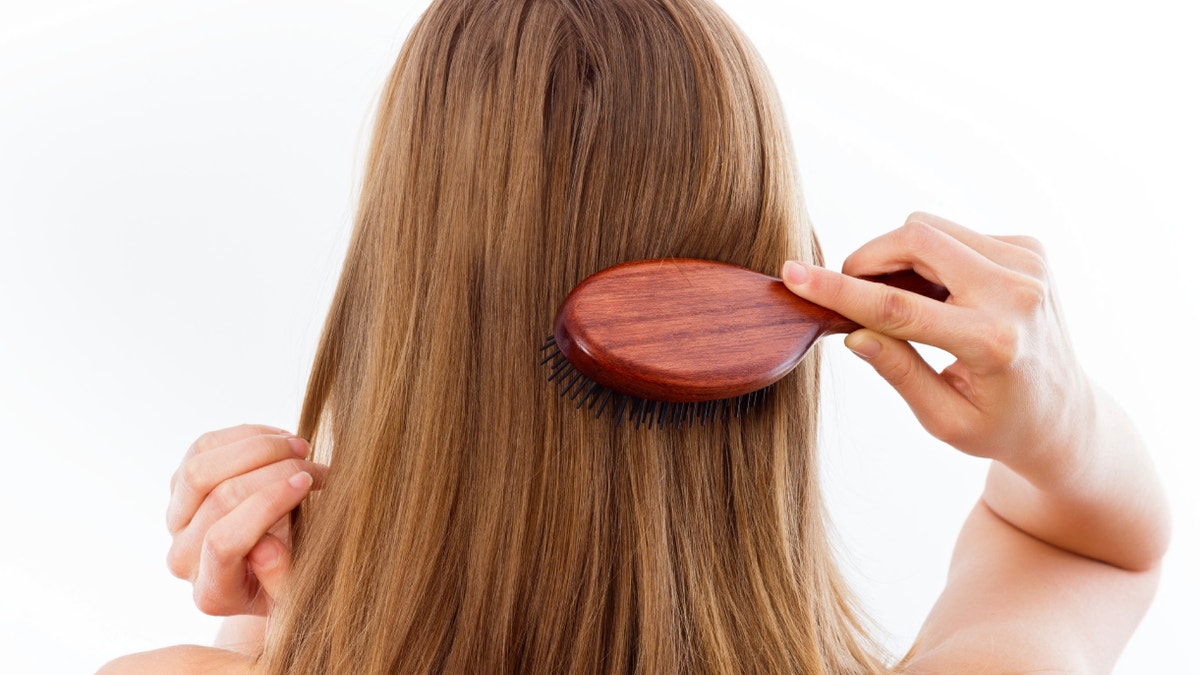
Woman combing her beautiful healthy hair.
Dry shampoo, a hair styling product that cleans hair without water, is a convenient product for people on the go. For one Irish woman, her quick-styling habit lead to baldness, she claims.
Nicole Baxter, 21, of Belfast, Ireland, said regular use of Batiste dry shampoo, made her scalp itchy, flaky, and eventually lead to blistering, news.com.au reported. In a Facebook post that’s been shared 30,000 times, Baxter claims to have been diagnosed with triangular alopecia, hair loss on one area of the head.
“Just wash your hair people! It is not worth having this awful patch that I might be stuck with on the side of my head all because I can’t be [bothered] to dry my hair,” Baxter wrote in the April 7 post.
The diagnosis of triangular alopecia is incorrect and dry shampoo is safe for most people, skin specialists told news.com.au.
“This is not triangular alopecia [as stated in the post], because that is a childhood disorder, and it’s not associated with itchy, flaking or sores on the scalp, which is what she had,” professor Robert Sinclair of Sinclair Dermatology in Melborne, who did not treat Baxter, told news.com.au.
Using information from social media, Sinclair speculated that the woman’s baldness and irritation were caused by an allergy to an ingredient in the dry shampoo, inflammatory alopecia, or alopecia areata.
Dr. Hanna Kuchel, a dermatologist with The Skin Hospital in Darlinghurst, New South Wales, questioned whether Baxter had dyed her hair, a common cause for contact allergy.
“Don’t lose any sleep over using dry shampoo,” Kuchel, who has not treated Baxter, told news.com.au. “In this case, although I don’t know the history of the patient, her baldness probably had nothing to do with dry shampoo, and have more to do with dye products.”
Sinclair suggested Baxter should have tested the dry shampoo on an area of her forearm to see if it caused a similar allergic reaction.
“You wouldn’t want to decimate a whole industry based on one patchy report, where it’s not clear what caused it, because it’s quite possible her condition has nothing to do with the product,” he told news.com.au.
